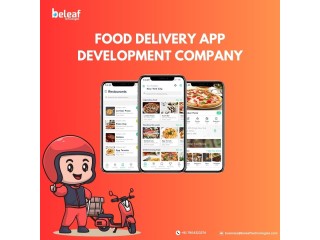Label Printing Full-time Job
2 years ago - Executive / Head Chef - Davangere - 66 viewsJob Details
How do you recognize certain brands and products? It is due to their specific labelling, their logo, and design. The distinct Label Printing of a product is one of its most identifiable features. Let us learn about its importance.
Introduction to Labelling
Labelling is the display of label in a product. A label contains information about a product on its container, packaging, or the product itself. It also has warnings in it. For e.g. in some products, it is written that the products contain traces of nuts and shouldn’t be consumed by a person who’s allergic to nuts. The type and extent of information that must be imparted by Food Labels are governed by the relevant safety and shipping laws.
Labeling is also an important part of the brand of the product and the company. It helps the product stand out in the market, and identifies it as a part of a particular brand. This is important in the era of high and intense competition.
Importance of Labelling
Labelling is an important part of the marketing of a product. Labelling is essential as it helps to grab the attention of a customer It can be combined with packaging and can be used by marketers to encourage potential buyers to purchase the product. Packaging is also used for convenience and information transmission. Packages and Daily Chemical Labels communicate how to use, transport, recycle or dispose of the package or product.
Labelling is also used to exaggerate the product. Also, it is used for identification. This kind of labeling helps a viewer to differentiate the product from the rest on the shelves of the market. A person can find out about the ingredients of a product. This helps to spread awareness among the customers about the item they are consuming and labeling also helps to mention ingredients.
Labeling is another very important factor in a product. It should show the correct information about the product. Water Washing Label is all the more important in products such as pharmaceuticals. Labeling should also contain information relating to whether the product has harmful chemicals, especially if it is a product that is meant for children.
The Instruction Manual is one of the most important details provided to the customer. Its sole purpose is to ensure the proper use of the product sold. A clear artwork should be provided to the supplier at the time of the purchase order. Additionnaly, that same artwork should be sent to the third party inspection company. The instruction manuals for inspections are compulsory but are not enough.
THE USE OF THE INSTRUCTION MANUAL FOR INSPECTION
When performing an inspection, specially for the function check, the inspector will check the instruction manual content and compare it with the artwork or approval sample if available. If the manual is written in English or Chinese (for inspections in China), the inspector may use it to check the use of the product inspected. Otherwise he will only compare the information provided in the inspection protocol, or the approval sample, with the production samples.
To ensure the QC inspector is able to check the functions of the product, the instruction manual should also be provided in English and in detail. Sometimes instruction manuals are simplified, focused on the user as above mentioned, and it may not be detailed enough for the inspector. Buyers should complete the instruction manual in English with clear and precise product specifications.
Everything we do in business today is digital -- sending mail, signing contracts, attending meetings, even networking. The business Card Printing is one thing that digital will not fully replace anytime soon. Here are five reasons why the old school business card is still important -- and why you should have a pocket full of them at all times.
Networking is about making genuine connections. Sending contact information via text or email on the spot is convenient but it is also extremely impersonal. Engaging in eye contact and actual conversation is how real relationships begin. Two individuals with their heads buried in their phones typing away won’t create any kind of significant memory of the encounter. You can easily transfer the information from a business card to your mobile device after the conversation.
What is Carton Packaging?
Folding Carton packaging kickstarted the packaging industry over a hundred years ago and is now a billion-dollar industry today. Today, packaging boxes are being used in almost all products, such as electronics, toys, cosmetics, food and bakery products and a lot more.
Most packaging boxes, also called cartons, are made from folding different types of paperboards or fiberboards. The folding techniques also vary depending on the requirements. Windows can also be added to provide consumers with a view of the contents inside. Some also come with built-in locking mechanisms.
Types of Packaging Boxes
Most cartons mainly come in two formats - folding cartons and rigid box cartons.
Folding Packaging Cartons are those which are manufactured from a single sheet board. It can be paperboard, corrugated board or fiberboard. A single sheet is die-cut according to a template and is then folded to make a box or a tray. A very common example of a folded carton is a pizza box where the single corrugated sheet is folded to make the top, bottom and the sides.
The opposite of folding cartons is the rigid box cartons. This is where the top and the bottom parts are separate. This type of boxes is also known as telescopic boxes. Shoe boxes generally come in this format. Clothing items and electronics also use such type of two-piece boxes.
Depending on the material used, as well as the construction, packaging boxes are broadly grouped into five different categories.


